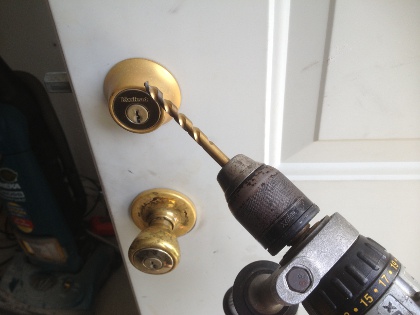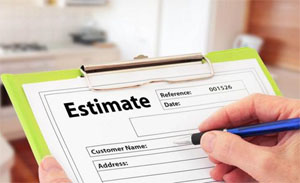How To Spot A Locksmith Scam Before It Happens
As sad as it may be, locksmith scams are a common problem in Houston. According to an ABC news report, as well as multiple other local and national outlets, scammers take advantage of people who are locked out of their house or stuck on the road.
These scams are a growing problem, and they can cost customers ten times the standard rate. However it is also necessary to remember that the danger with these scams is not merely the money, it is the opportunity. Fraudulent locksmiths can use the time to copy your key and rob your house on a later date.
Six signs that should raise a red flag:
An excellent deal
You are likely to ask for, or be given, an estimated cost of the service over the phone. If it sounds too good to be true, it probably is. Scammers play on emotions, representing their service as the answer to all your problems.
According to ‘ACME locksmith,’ Robert Vallelunga, no reputable locksmith can charge $15 for a job. They need to pay for their tools, transportation, and in some cases their continued training. On average they will charge $100 for a job.
So if an estimate seems low and they are not able to give you a detailed answer about the fees involved in the estimate, it is probably a scam.
 No name, no history
No name, no history
It may sound strange, but if the ‘locksmith company’ doesn’t have a name, a website or a detailed contact information list, then it is probably a fraud.
The biggest sign is when they answer the phone with a simple ‘locksmith services.’ If the business is legitimate, it will have a name.
Evade questions
A fraudulent locksmith will dodge your questions, even if it is as something simple as ‘where is your office?’
If they give you an address, you should take a few minutes and search the location on Google maps. Be careful though; there have been instances where the company listed in the phone book has turned out to be a fraud.
Asking for more cash only
Scams start with a search; they end with a significant cash demand. The scammers prey on people in a tight spot, as they are more likely to relent and pay the extra money.
In the end, customers can end up paying $200- $300 for a $100 job. To make sure you do not get scammed, check the estimated cost for the job online and compare their charges to that.
They may also demand cash because there is no record of the payment, making it harder for you to take the matter to court. So if they try to overcharge you, demanding a cash payment, their service is likely to be a scam.
 Locksmith needs to use a drill
Locksmith needs to use a drill
A certified locksmith will not need a drill to deal with a door or lock unless you have a highly specialized lock and key.
Nor will they need to replace your conventional lock with a ‘high security’ one, charging a hefty amount for the process. If you discover yourself in either of these circumstances, it is likely you are being scammed.
No brand image
Legitimate locksmiths, working for a company, will arrive in uniform and marked cars. If they do not, ask for an ID. If a locksmith can not provide a TXDPS licensed ID, then do not let them near your lock.
Reporting a scam
If a locksmith scams you, you will need to report it to the Federal Trade Commission. They have an online complaint system, which asks you to choose the type of scam that you were a victim.
You can additionally call them at their helpline and provide them with information regarding the incident. They will enter the complaints into a secure database known as Consumer Sentinel. This online information is sent to law enforcement agencies in the USA and abroad.
Ways to make sure that the company is legitimate
Now that you know how to avoid locksmith scams, it is time to look at choosing a reputable company.
The first most important rule is, avoid calling a locksmith if you are panicking. The Associated Locksmiths of America statistics show that approximately 250,000 people will make an emergency call to their locksmith every day.
These calls have led to a growing number of complaints about locksmith services and their fraudulent work. According to the Better Business Bureau, the number of complaints doubled in two years, from approximately 250 complaints to over 500.
To make sure that the locksmith is legitimate you should:
Ask for a written estimate
 This formality will help you to avoid scams. The written estimate should have a signed authorization for the amount charged as well as a list of fees that are involved in the service and the cost of the parts for the job.
This formality will help you to avoid scams. The written estimate should have a signed authorization for the amount charged as well as a list of fees that are involved in the service and the cost of the parts for the job.
You should check this estimate before you allow them to start repairing, or removing, the lock. If there is a discrepancy between the cost of the estimate and the amount authorized on the phone, look for someone else.
Ask for identification
According to Texas law, the locksmith’s license and the company license must be renewed every two years. This process includes taking a mandatory class.
As such, every certified locksmith technician in Houston will have a ‘Pocket Card.’ It is illegal to work as a locksmith without one. These identity cards are authorized by the Private Security Bureau (PSB) of The Department of Public Safety in Texas.

Check their BBB rating
The Council of Better Business Bureau has an online business accreditation directory. The non-profit organization focuses on building trust in the market place. Customers can check the authenticity of their locksmith companies by referring to the ‘rating’ given by the BBB online. The council also has a section where clients can read reports about the latest scams and file complaints against a fraudulent company.
You Can Just Call Us!
We can connect you with a licensed locksmith company in Houston, Dallas, San Antonio, & Austin.


